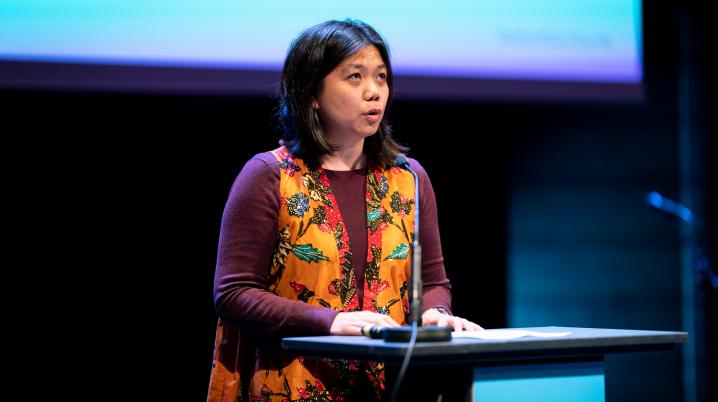
Grace Leksana at Indonesia and the Netherlands - a joint future: Indonesia and the Netherlands
I started my PhD project in the Netherlands in 2015. While I was doing research on Indonesia’s past, during my stay in the Netherlands I also saw this country and its people struggling to face their own past. I had not realized, until I came here, how prominent Indonesia is in the Netherlands: from the culinary experiences, the arts, to the existing migrant communities (the Indisch community, the Moluccans, and Chinese Indonesians).
I had not been aware of the heated debates on colonialism in the Netherlands that have been growing into a critical stance. While learning about the Dutch golden age through its present heritage in architecture, arts and collections, I also observed how critical the Dutch postcolonial communities are in questioning what the golden age is built upon. At the same time, I do understand that facing this difficult past is a difficult process: it is frustrating, filled with denial, and often painful. On the other hand, this is part of the quest which defines democratic nations – to be able to deal with an uncomfortable past. It is also important to remember that democracy is a process, not a fixed status of a nation. A process that Indonesia, just as the Netherlands, is still struggling in. Facing the past will always be a continuous struggle, for any nation.
But I don’t want to use this moment to talk in any detail about Indonesia’s past. I do want to reflect on Prof. Oostindie’s remark on Indonesia’s and the Netherlands’ steps towards the future – the oft-quoted invitation to “Move forward, instead of looking backwards”. I have to appreciate that this passion for a shared future (both in the Netherlands and Indonesia) is a driving force for successful collaborations between the two countries. Research on colonial and postcolonial history and the attempt to decolonize knowledge production are just some examples. It is also through these experiences that we learn to be more critical towards the relationships behind these collaborations. Who decides which way to move forward, and how, is the question that we are frequently asking. A question of power relations. This is the same issue underlying the colonial past, which we are struggling to change in the post-independence cooperation between the Netherlands and Indonesia. And also, more broadly, in scholarly relations between the West and the Global South that often result in unequal, one-directional collaborations. Acknowledging this notion, and taking it into account, is a first and crucial step towards a productive partnership.
Furthermore, it is important to keep in mind that the concept of a shared past that Prof. Oostindie has mentioned, should not be seen as a quest for a common interpretation of the past between the Netherlands and Indonesia. On the contrary, it is an effort to explore and uncover in the most critical sense. The result may be a common understanding of the past, but it can also, and more likely, result in different interpretations of the past. This may be the fundaments of our shared future: that it is built not on commonalities, but on differences.
I will end my talk with this last point on diversity of views. The effort to revisit our past has brought Indonesians into more nuanced and diverse interpretations of colonialism. It also drove young generations of Indonesians to produce inspiring and critical works about our past. Through popular art and culture, Indonesians are becoming increasingly engaged in discussions about our nation’s history. Some of these works breathe a very nationalistic tone in their interpretations of Indonesia’s independence and colonialism. Yet others are presenting a more dynamic and multi-layered interpretation of the colonial past and its continuity in the post-colonial present, presentations that go beyond a story of good versus evil.
I will leave it here. I am delighted that I was given the floor to offer my reflections. And I wish Your Majesties a wonderful and inspiring trip to Indonesia.
Grace Leksana, De Brakke Grond, February 18, 2020

